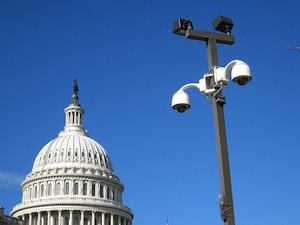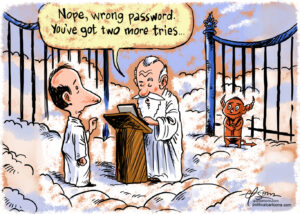Google Reports Government Push for Private Data
Google’s latest transparency report shows the number of government requests for private data increased 136 percent from the second half of 2009 to the end of 2012 as U.S. officials used legislation that “bypasses judicial approval to access the online information of private citizens,” according to The Guardian.
Google’s latest transparency report shows the number of government requests for private data increased 136 percent from the second half of 2009 to the end of 2012 as U.S. officials used legislation that “bypasses judicial approval to access the online information of private citizens,” according to The Guardian.
In the United States, 68 percent of requests were made using the Electronic Communications Privacy Act (ECPA). Unlike wiretaps or physical search warrants, that law allows officials to conduct searches without the oversight of a judge. Google said it complies in some way with 90 percent of those requests.
Governments worldwide are getting more aggressive with their push for private electronic data, the report says. “User data requests of all kinds have increased by more than 70% since 2009,” Richard Salgado, legal director at Google, said in a blog post.
The United States led the poll by far with 8,438 requests. India came in second with 2,431.
— Posted by Alexander Reed Kelly.
Your support matters…The Guardian:
This is the first time Google has disclosed the legal processes used by US officials to gather electronic information.
The ECPA has been widely criticised by privacy advocates, and was passed in 1986, long before electronic communication became so common. Under the act, email stored on a third party’s server for more than 180 days is considered abandoned. To access that information, officials need only a written statement certifying that the information is relevant to an investigation.
But Holmes Wilson, co-founder of online advocacy group Fight For the Future, said the Justice Department had argued that emails are “abandoned” once they are opened. “Ironically, the emails that now have the most protection are the spam that you never open,” he said. “ECPA is under dire need of reform. Right now the government can access almost anything that you have online without a warrant and at anytime. Electronic communication should be afforded the same protection as your physical mail or files stores in a cabinet,” he said.
Independent journalism is under threat and overshadowed by heavily funded mainstream media.
You can help level the playing field. Become a member.
Your tax-deductible contribution keeps us digging beneath the headlines to give you thought-provoking, investigative reporting and analysis that unearths what's really happening- without compromise.
Give today to support our courageous, independent journalists.






You need to be a supporter to comment.
There are currently no responses to this article.
Be the first to respond.